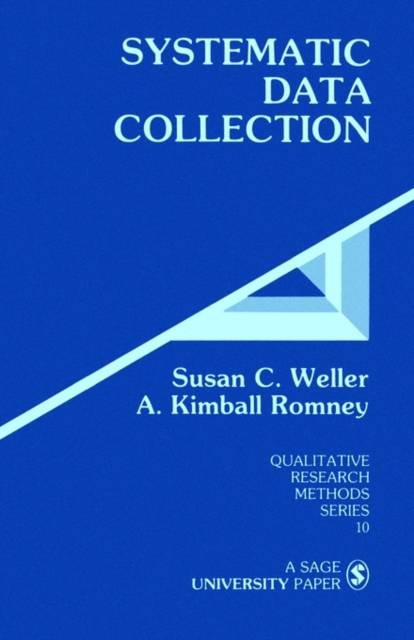
- Retrait gratuit dans votre magasin Club
- 7.000.000 titres dans notre catalogue
- Payer en toute sécurité
- Toujours un magasin près de chez vous
- Retrait gratuit dans votre magasin Club
- 7.000.0000 titres dans notre catalogue
- Payer en toute sécurité
- Toujours un magasin près de chez vous
Description
The process of collecting accurate data through interviewing, questionnaires, and other methods has not always been clear. However, data collection in field settings can be done in a structured, systematic and scientific way. These authors show us how. First, they focus on the importance of finding the right questions to ask. By providing a variety of formats - triadic comparisons and rating scales for data collection, both oral and written methods - and stressing cultural relativity, Weller and Romney suggest ways to improve not only the data collected, but also the interpretation and analysis of such data. Primarily addressed to qualitative social scientists, this volume is also appropriate for anyone who wants to study attitudes and beliefs. In particular, it is an ideal text for courses in anthropology, linguistics, qualitative research methods, health care, and survey research.
Spécifications
Parties prenantes
- Auteur(s) :
- Editeur:
Contenu
- Nombre de pages :
- 96
- Langue:
- Anglais
- Collection :
- Tome:
- n° 10
Caractéristiques
- EAN:
- 9780803930742
- Date de parution :
- 01-02-88
- Format:
- Livre broché
- Format numérique:
- Trade paperback (VS)
- Dimensions :
- 143 mm x 221 mm
- Poids :
- 145 g

Les avis
Nous publions uniquement les avis qui respectent les conditions requises. Consultez nos conditions pour les avis.






